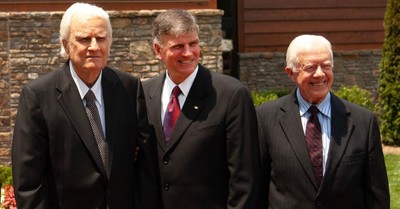Restoring the Virtue of Meekness; Living Like Jesus Christ
- John MacArthur Grace to You
- Updated Oct 09, 2009

Pride has been redefined in American culture as a virtue. The strong, the beautiful, the powerful, the intelligent, and the privileged take every opportunity to put themselves forward. Politicians manifest pride in speeches and debates; entertainers glamorize pride in their movies and lifestyles; educators teach pride by emphasizing self-esteem and making every child a winner (whether they deserve it or not); and sports icons reinforce pride as the path to greatness.
Probably the least admired character quality in America is meekness. And yet the greatest Person who ever lived was a meek and humble man-"learn from Me, for I am gentle [meek] and humble in heart" (Matthew 11:29). Jesus exemplified meekness during His first advent, even as He ministered in the power of God. Those who follow Him will also demonstrate meekness, or gentleness as fruit of a Spirit-filled life (Galatians 5:22).
"Meekness" is a humble attitude that expresses itself in the patient endurance of offenses. "Gentleness" is a virtual synonym. It implies leniency and long-suffering.
Meekness is not weakness; it is power under control. As the writer of Proverbs says, "He who is slow to anger is better than the mighty, and he who rules his spirit, than he who captures a city" (16:32). In contrast, the individual who is not gentle is likened to "a city that is broken into and without walls" (Proverbs 25:28). Gentleness always uses its resources appropriately, unlike the out-of-control emotions that so often are destructive and have no place in your life as a believer.
And don't equate gentleness with cowardice, lack of conviction, or mere human niceness. It's a virtue that draws courage, strength, conviction, and a good disposition from God, not from self-centered human resources.
Gentleness characterizes our Lord Jesus Christ. He always defended God's glory and ultimately gave Himself in sacrifice for others (see 1 Peter 2:21-23). Jesus didn't lash back when criticized, slandered, or treated unjustly, but He did respond fittingly and firmly when God's honor was profaned or His truth was perverted or neglected. He twice cleansed the Temple by force (Matthew 21:12-17; John 2:14-15), and He repeatedly and fearlessly denounced the hypocrisy of the Jewish religious leaders (Matthew 23:13-36; Mark 12:13-40; John 8:12-59; 9:39-41).
When His time of suffering came, however, Jesus submitted to the will of His Father and endured the abuse and murderous intentions of the hypocritical leaders. He demonstrated meekness to the very end. "While being reviled, He did not revile in return; while suffering, He uttered no threats, but kept entrusting Himself to Him who judges righteously" (1 Peter 2:23).
Like Christ, the gentle person does not defend himself (see 1 Peter 2:21). That's because he has died to self and therefore does not worry about insult, material loss, or even personal injury. The believer who embraces meekness knows that in himself he does not deserve defending and that, in the long run, all his possessions are not worth fighting for. In that sense, gentleness is the opposite of violence and vengeance.
For some, meekness leads to suffering. "For Your sake we are being put to death all day long; we were considered as sheep to be slaughtered" (Romans 8:36). But there is triumph for the meek, even in suffering-"But in all these things we overwhelmingly conquer through Him who loved us" (v. 37).
Meekness is a path worth following. It may not lead you to a spot on "American Idol" or "Survivor," you may not win a political campaign, but you'll find the reward of God is yours in abundance. Jesus promised, "Blessed are the gentle, for they shall inherit the earth" (Matthew 5:5).
Adapted from The Quest for Character, by John MacArthur. © Copyright 2006. All rights reserved.



















